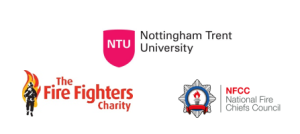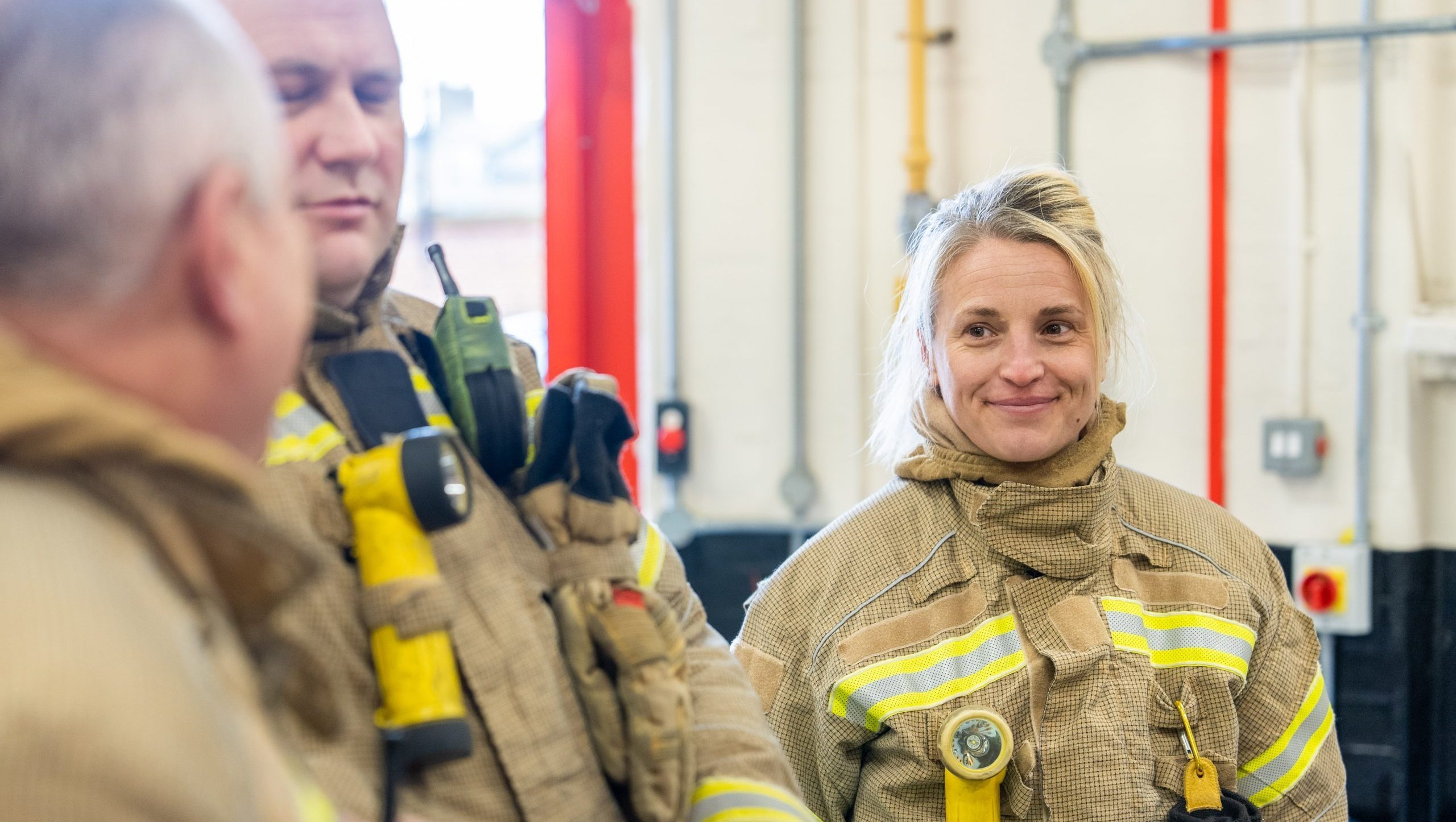Research which surveyed more than 3,000 UK fire and rescue service personnel has found that mental wellbeing across the service is being impacted by issues such as sleep disruption, occupational stress, burnout, anxiety, and depression.
Carried out by Nottingham Trent University (NTU) and commissioned by the National Fire Chiefs Council (NFCC) and Fire Fighters Charity, findings also suggest that increased length of career – not related to age – is associated with experiencing more mental wellbeing challenges.
However, wellbeing was found to be improved by work engagement, social support, resilient coping, and by both job and life satisfaction. Exercise is also positively associated to work engagement, job satisfaction, perceived social support, life satisfaction, and resilience. It is also linked to lower levels of burnout, anxiety, stress, and depression.

The research was undertaken by Nottingham Trent University and commissioned by us and National Fire Chiefs Council
Along with the survey, which was carried out across all roles – from frontline firefighters to support and control staff – researchers completed a comprehensive review of available literature to bring together a holistic view of fire and rescue sector worker wellbeing across role and career position for the first time.
Key priorities
The study has led to the development of 13 key priorities which will be used to inform the next UK-wide fire and rescue sector health and wellbeing strategy – and will include:
- Supporting individuals to own their own wellbeing
- Taking a holistic approach from new starter, through career and into retirement
- Applying the sector’s prevention talents to its own wellbeing
- Adopting an evidence-based, holistic approach to health and wellbeing, instead of treating physical, psychological and social wellbeing separately
- Creating shared health and wellbeing language across the sector
- Developing and using data to measure wellbeing trends and impact
- Scaling up the use of data from a local to a national level
- Encouraging a flexible approach to health and wellbeing
- Establishing a dedicated analytical group/body to undertake health economy modelling and leadership
- The NFCC adopting a framework that acknowledges the influence of lifestyles and environmental factors
- Reviewing the governance structure of the NFCC People Programme and Health and Wellbeing Board, to ensure that its membership is aligned to a new strategy
- Sharing of resources across the sector, ensuring they are presented and communicated in an accessible manner
- Creating ‘tasking groups’ with responsibility for specific aspects of the health and wellbeing needs assessment.
Lead researcher Rowena Hill, Professor of Resilience, Emergencies and Disaster Science at NTU’s School of Social Sciences, said: “This comprehensive study comes amid changes in society which may affect the way the Fire and Rescue Service operates, and inevitably lead to increasing pressures and responsibilities for staff.
“Our findings showed that when life and work stress connect, one makes the other more difficult to cope with and there is a need for a wide range of support offerings for all FRS staff, not just operational roles. The results and recommendations have been tested with a range of stakeholders to ensure they can be understood and acted upon to support the sector and its staff.”
Ian Hayton, Chair, National Fire Chief Council’s Health and Wellbeing Board, said: “Supporting fire and rescue service staff to look after their health and wellbeing is of vital importance to all Chief Fire Officers and the National Fire Chiefs’ Council and remains a key focus for all UK fire and rescue services. The much needed academic research has brought together the available evidence and has highlighted key areas to consider in bridging the gap between the current approach to health and wellbeing in the Service and the desired future state.
“This research will now form the foundation and evidence base to guide the development of national strategies and policies, good practice guidance, and intervention techniques and tools. With a collaborative approach to delivery, we will work towards a shift in organisational culture to one that prioritises health and wellbeing, with a key focus on the protection and promotion of wellbeing, and the provision of timely access to evidence-based support for those staff in need.”
Dr Jill Tolfrey, Chief Executive, Fire Fighters Charity said: “We commissioned this research, together with the National Fire Chiefs Council, in order to better understand the health and wellbeing needs of the fire and rescue service workforce and the gaps in support that need filling. We wholeheartedly support the recommendations and identified priorities highlighted by the team at Nottingham Trent University and are committed to working in partnership with fire and rescue services, the NFCC and government to deliver change and improve the health and wellbeing of fire and rescue service personnel.”
Research details
Click here for full details and to download the research reports and recommendations

